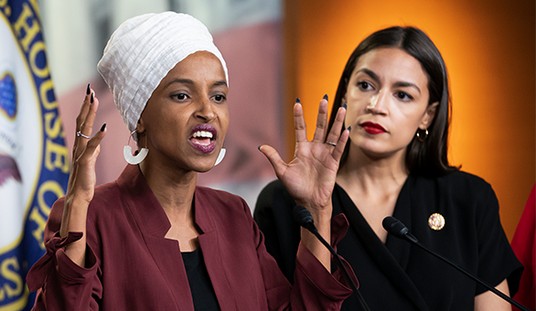Often, around this time of year, I like to write a little satire on the Oscars, teasing Hollywood for all the great conservative films that would be massive hits — if it weren’t for the fact they never get made. (Hannity! The gripping ripped-from-the-headlines story of a square-jawed Fox News commentator who stands alone against a racist media lynch mob when three innocent Duke Lacrosse players are wrongly accused of rape!) But to be honest, reading this year’s list of nominees, I couldn’t work up the energy. The awards just seem too irrelevant.
Take a look at this. I picked three years before 1968, when Hollywood began to get radicalized.
1946 was a high watermark of movie ticket sales. Of the Oscar nominees that year (not counting the British Henry V, which had a staggered release), three out of four were top ten at the box office. The fourth was It’s A Wonderful Life, which came in at only number thirty but has been making up for it ever since. The winner, The Best Years of Our Lives, was number one.
In 1956, again, four out of five films nominated were in the box office top ten. The exception was William Wyler’s Friendly Persuasion, which fell just out of the top twenty. The Oscar winner, Around the World in Eighty Days, was number two at the BO. The Ten Commandments was number one, and remains popular to this day.
Finally, in 1962, all five of the nominated films were in the Box Office top ten. The winner, Lawrence of Arabia, was number one and also one of the greatest films ever made.
Nowadays, the academy has taken to nominating twice as many films because they can’t find five that are both award-worthy and popular enough to draw eyeballs to the Oscar show. Of the nominees this year, only the fine and original entertainment Gravity is in the top twenty, though Captain Phillips, certainly one of the best films I saw last year, and American Hustle, have both done respectably. To be fair, many of the pictures were released late in the year and may climb the BO ladder with some Oscar buzz. But many — Her, Philomena, Nebraska and Dallas Buyers Club — are unlikely to reach a big audience ever. Her is also a bad movie.
Now obviously, bad box office doesn’t mean a film is undeserving of award attention any more than good box office makes The Hunger Games sequel an enduring classic. That’s not my point at all. My point is simply that Hollywood used routinely to be able to make fine films that were also popular smashes. Now, with only the very occasional exception like Gravity, not so much.
In part this is just something that happens to an art form as it ages and its energies and variations get played out. Byron’s poetry made him a celebrity. Today, most people couldn’t name a living poet.
But hand in hand with that process of decay comes elitism, and elitism hastens the decline. When filmmakers can no longer gain the love of the public, they turn to intellectuals and critics for praise and prestige instead. That means they have to flatter these types by representing, affirming and romanticizing their ideas and concerns (see Allen, Woody). The elites declare movies “ground-breaking,” “innovative,” and “shocking,” whenever they reflect their own narrow and provincial belief system, that system that makes urban intellectuals feel superior and virtuous. A film that transgresses against this belief system (an anti-abortion film, say, or a patriotic war film or an openly capitalist film) is not praised as shocking because the intellectuals are actually shocked by it!
So as art forms die, they metamorphose from a means of entertainment to a form of elite self-love. Once-popular awards like the Oscars become embarrassing gatherings of the privileged applauding their own superiority.
If Hollywood would stop despising the broader audience and make movies that are both intelligent and reflect their concerns (Hannity! The gripping ripped-from-the-headlines story of a… oh, never mind.), those ticket sales might start climbing back toward 1946 levels, the quality of popular movies might go up, and maybe the Oscars would be worth caring about again. But don’t hold your breath.









Join the conversation as a VIP Member